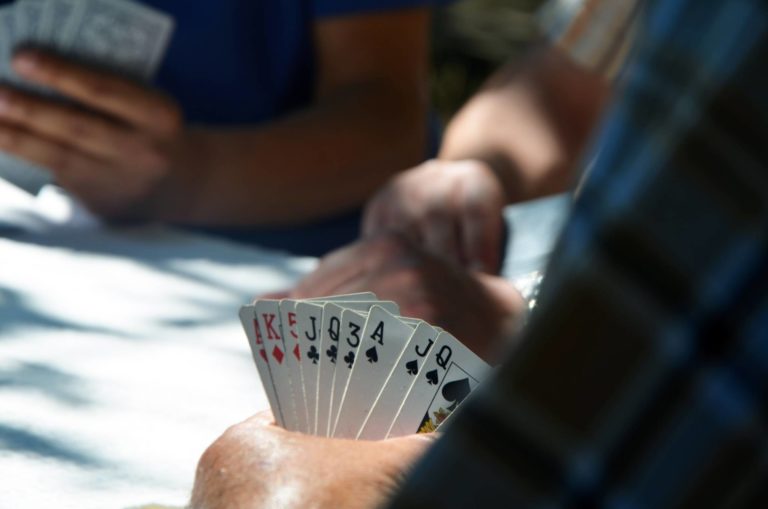“Should he just sit there?”: The Role of Exercise in Dementia

Hearing mixed messages about exercise in those living with dementia? The story is complicated. Learn more in this deeper dive into how to decide helps and when to reconsider pushing for more exercise.
I receive so many questions about exercise and with all questions, I usually inquire about the intent behind the question. What goals are you trying to accomplish? Do you want to exercise to help sleep? To keep you or your loved one walking safely? Do you think it will help with anxiousness or agitation? Do you think it will help with memory or the progression of dementia?
The overall benefits of exercise are well known. Aerobic exercise improves cardiovascular fitness. Weight training improves strength and function. Balance exercise decreases the rate of falls. And, while I am often reluctant to admit it during a cozy couch potato session, exercise in its many forms usually makes me feel better – even if I haven’t reached a “runner’s high”.
Does exercise ‘help’ Alzheimer’s disease or related dementias?
The answer, as always, is complex.
One of the largest studies assessing exercise in individuals with dementia was done in Finland. The researchers found that those that exercised at home or in groups at a day program (about 1 hour twice per week for 1 year) experienced less loss in physical function than those that did not exercise1. Unfortunately, functional loss occurred – in all groups. This is due to the neurodegenerative process of dementia – functional loss is going to occur. The good news is that exercise slowed that functional loss, but the bad news is that it could not stop it.
So – yes, exercise will help slow the functional decline that accompanies dementia. Once the functional loss is severe, be selective in what your goals are. If exercise is becoming burdensome or difficult to accomplish – it may be time to shift the care focus from exercise to other activities that improve quality of life in other ways. Stay open and adaptive – remember the goal often is improved quality of life rather than extended life.
Does exercise ‘help’ caregivers or care partners?
Exercise should be considered for caregivers/care partners. Research shows that caregivers are likely to neglect their own health2. In times of stress, as may occur with caregiving, exercise becomes all the more important. Caregivers that exercise report less symptoms of depression than those that do not exercise. Use creativity to find ways to adopt exercise into the caregiving situation.
- Exercise with your care receiving partner – make exercise a paired activity. I did chair aerobics and chair yoga with my mother when dementia was diminishing her ability to walk and balance safely. I was able to get a workout in, she was able to participate and it was an excellent source of laughter – some of the outfits on the videos had become seriously outdated!
- Consider creative ways to get out for a walk. I used a “baby monitor” to walk around the block while my mother napped. I was never more than 1 minute away from the house (my neighborhood has tiny yards). The neighbors were informed that I may be cutting through their yards if I heard/saw her stirring – all of them understood. The walk in nature and exercise enjoyed while Mom had a quiet house.
- Walk inside the house. Or jump rope. Or mini-trampoline. Or pop in a video and work out in the living room or basement. Or lift hand and leg weights. There are numerous options! Call a friend and “share” the same exercise time so that you can call him/her back when your 10 minutes (or whatever you agree on) of workout are complete –this will help you move into action. Join an on-line exercise challenge – another way to improve your motivation and allow for a sense of community. If you feel bored by some of your home options, rent videos from the library or your ask neighbors for suggestions or an exercise video swap.
- Employ (through hire or barter) a companion while you make time to get out and exercise. Consider a social exercise situation such a golf, tennis or bowling league. The social aspect combined with exercise will assist with stress in two important and different ways. Or, if you prefer, use the time by yourself – consider a run or a bike ride.
- One of my favorite patient/care partner couples used exercise for several years of the wife’s time living with dementia. They danced. Dancing together early in the time with dementia brought them close together and established a loving connection. As the disease progressed, dance was used to alleviate agitation. I often came into the examination room to find the couple swaying together as they waited for me. In the later stages of dementia, my patient was confined to a wheelchair, but her husband danced around her, dipping in often for a tender and loving squeeze or a kiss.
Does exercise help cognitive function in those with dementia?
Again, the answer is complex. In another report from the same study discussed earlier3, those that received home based exercise had better executive function. Executive function is the higher level cognitive function needed to coordinate tasks to get things done. Those that received exercise in a group setting did not see this benefit. The exercise, though still an hour, was not as intense and this difference in exercise delivery may have altered effected the difference in the results. The potential, speculated reasons exercise may help with thinking skills are numerous and varied. It may be better blood supply to the brain, improved blood pressure or lipids profiles, less inflammation. If many of these theories are true, it may be that exercise would help thinking more before dementias begin or early in the process, rather than later.
Consider this
- Exercise in all forms has health benefits –physical and mental
- Explore several types of exercise or situations to build exercise into your day –examples are limitless.
- If exercise is becoming a burden due to functional loss or falls, focus your energy in other ways to improve quality of life
- Exercise will have benefits on the functional and cognitive loss of dementia, but unfortunately, the loss continues even in the face of exercise.
- Finally, for tips on how to help you as the helper, sign up here.
References
1) Öhman H, Savikko N, Strandberg TE, Kautiainen H, Raivio MM, Laakkonen ML, Tilvis R, Pitkälä KH. Effects of Exercise on Cognition: The Finnish Alzheimer Disease Exercise Trial: A Randomized, Controlled Trial. J Am Geriatr Soc. 2016 Apr;64(4):731-8
2) Castro CM1, Wilcox S, O’Sullivan P, Baumann K, King AC. An exercise program for women who are caring for relatives with dementia. Psychosom Med. 2002 May-Jun;64(3):458-68.
3) Pitkälä KH1, Pöysti MM, Laakkonen ML, Tilvis RS, Savikko N, Kautiainen H, Strandberg TE. Effects of the Finnish Alzheimer disease exercise trial (FINALEX): a randomized controlled trial. JAMA Intern Med. 2013 May 27;173(10):894-901.






